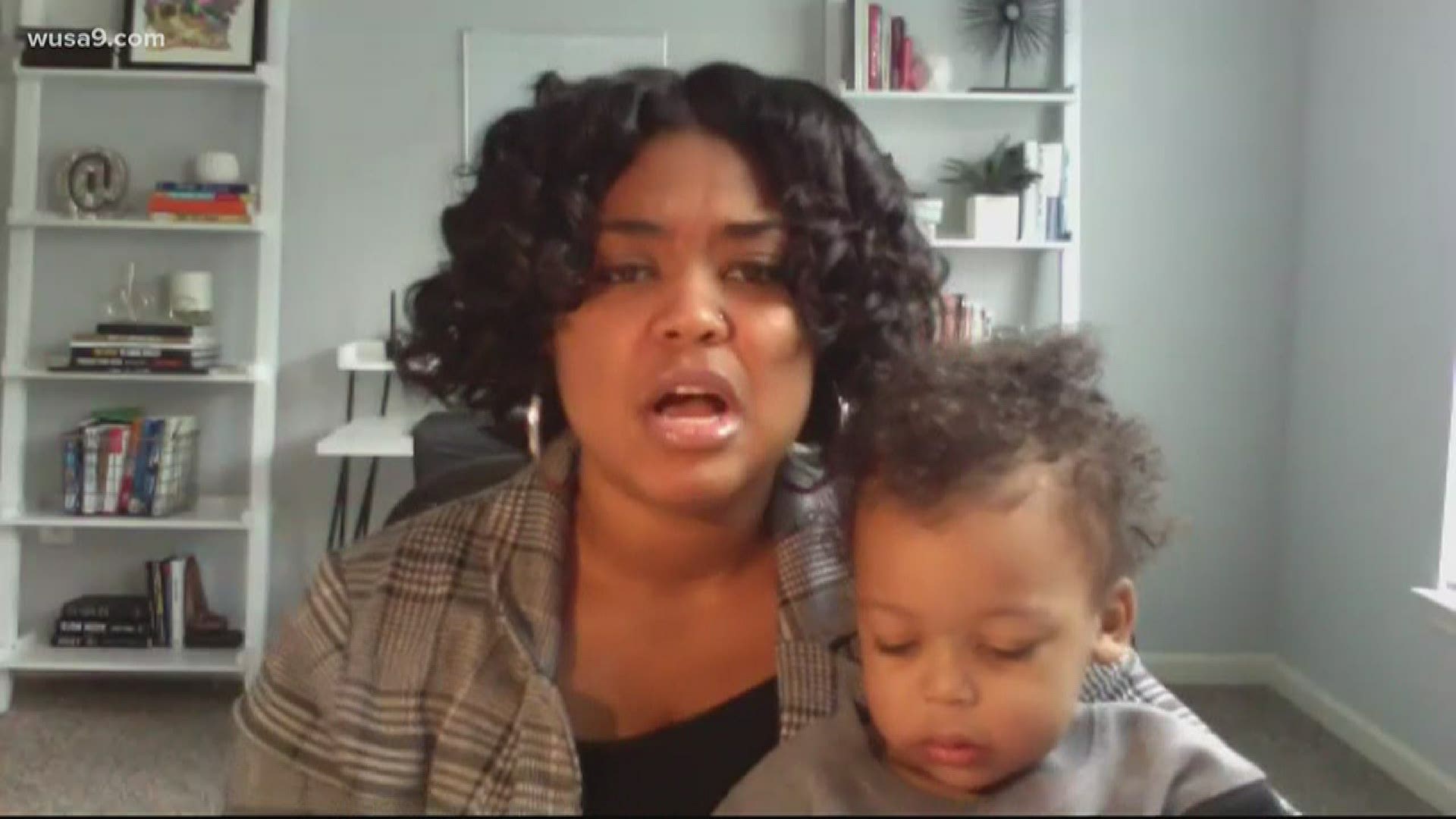UPPER MARLBORO, Md. — We're approaching the end of Autism Awareness Month, and like just about every other facet of life, the coronavirus has impacted the way children on the spectrum receive therapies and treatment.
One of every 54 children has autism, and just like other kids across America, they've been forced out of the classroom, or daily routine and told to stay home, which can be especially disruptive. We spoke with one family who's had to make major adjustments in how they're helping their son.
He's like every other little boy who’s approaching the big 3. Zander Dangerfield enjoys the simplicity of life, especially playing with his sisters. He just so happens to be the one in 34 boys on the spectrum. At 18 months, he was diagnosed with autism.
"Because I am a speech language pathologists and early interventionists, I do work with a lot of kids on the spectrum. So, I knew the signs and symptoms. I knew at 18 months and I sort of held off, just provided again his age, and almost denial," his mother Kacey Dangerfield said.
Zander is the youngest of three. She and his dad enrolled him at Turning Point Treatment Center in Upper Marlboro where he was getting help six hours a day.
"The program -- you're actually the child's match with an ABA therapist -- they address your child's specific goals that you, and the therapist have come up with at the beginning of the program. They assess the child to see what needs to be done," Dangerfield added.
Autismspeaks.org says early treatment has lifelong benefits. But the coronavirus has forced the center to now host teletherapy, which can be difficult for children who are easily overstimulated.
"It's really the coaching approach with the parent; providing us with strategies to work with Zander and carrying over those strategies just to make sure that there's no real progression," Dangerfield said.
Dangerfield said getting a diagnosis is paramount in finding the help your child will need, and it can come with having tough conversations with pediatricians.
"There's hope. There are doctors out there who will also help with different underlying issues of autism. So definitely do your due diligence and do the research that's necessary," Dangerfield added.
She and her husband said Zander’s diagnosis was difficult to process, and as they learn more about their son’s condition, they’re hoping you will, too.
"Society's becoming a lot more aware of what autism looks like. Now, we need to look into acceptance," Dangerfield said.

